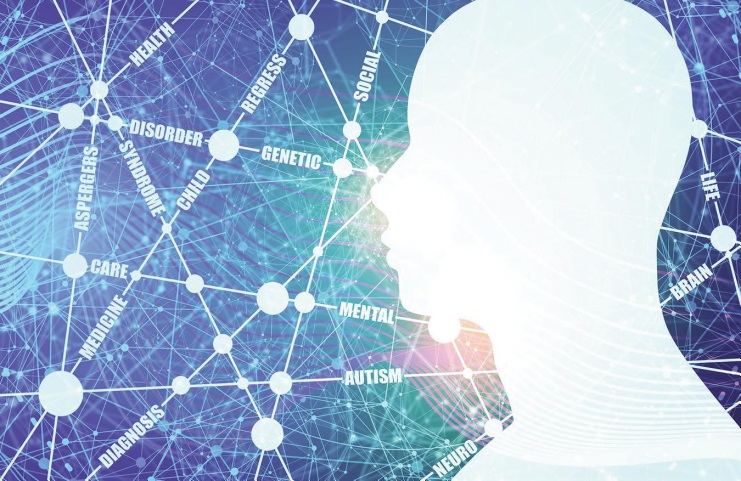WHAT’S HAPPENING
NEW SPARK STUDY IDENTIFIES A NOVEL GROUP OF INHERITED GENES OF MODERATE EFFECT AND SHOWS THEIR LINKS TO OTHER BEHAVIORAL CONDITIONS
In a series of articles published in the journal Nature Genetics, researchers used data from the SPARK (Simons Powering Autism Research) research cohort, which was created to advance our understanding of the complex genetics of autism and includes genetic data from nearly 43,000 people with autism. The findings show differences in genetic influences among people all along the autism spectrum

A FULLER PICTURE: The SPARK research cohort includes genetic data from nearly 43,000 people with autism.These new studies will lead the way toward an improved understanding of this complicated and common condition.
"Autism is a spectrum, and includes individuals with profound autism who often have cognitive differences and/or epilepsy, as well as individuals who are talented and exceptional, often in specific areas. We are now appreciating that the genetic contributions to different phenotypes vary in terms of the genes involved; when those genes are activated during brain development; and how common some of the genetic variants are in the population," said Wendy Chung, M.D., Ph.D., principal investigator of SPARK.
One study, "Integrating de novo and inherited variants in 42,607 autism cases identifies mutations in new moderate effect genes," was published in Nature Genetics on August 18, 2022. Researchers analyzed the DNA of almost 43,000 people with autism, including 35,000 participants from the SPARK autism research study, as part of SPARK's ongoing effort to understand the full spectrum of autism genetics. This largest-ever autism cohort allowed researchers to identify a group of novel "moderate-effect" genes that tend to contribute to autism through inherited variants.
It is widely known that autism is heritable, but previous studies have primarily identified autism genes with de novo vari
ants (DNV) – variants that occur spontaneously in germ cells prior to conception – that are not inherited. Most of these variants are also implicated in other neurodevelopmental disorders (NDDs). Most genetic variants of this type associated with autism have profound effects on the brain in those individuals when they occur. However, only 20 percent of individuals with autism have this type of genetic variant.
"For many years, we have known from twin studies that there must be inherited genetic variants that lead to autism, but we have not been able to systematically identify individual genes until now," said lead author Pamela Feliciano, Ph.D., SPARK's scientific director. "We have now identified a group of genes associated with autism, that can include inherited variants, which begin to explain a different part of the autism spectrum."
To gain a better understanding of the full spectrum of autism genes, the researchers analyzed 19,843 participants with autism, along with one or both of their biological parents, and found that roughly 20 percent of people with autism have de novo genetic variants that affect the function of the asso
ciated gene. Nearly 70 percent of this genetic contribution can be attributed to known autism or neurodevelopmental disorder genes. However, this means that although known autism-associated genes are responsible for the majority of de novo variants, there are others still to be identified.
The researchers next added in another 22,764 individuals with autism and 236,000 people without autism from the general population. In this meta-analysis, they identified 60 autism genes whose contribution to autism is largely driven by rare inherited loss of function (LOF) variants transmitted by parents who do not have cognitive differences or autism. Of these genes, five have not previously been implicated in neurodevelopmental conditions.
Individuals with autism who carry inherited variants in these "moderate effect" genes are less likely to have cognitive differences than people with autism who carry LOF variants in well-established autism genes, such as CHD8 and SCN2A.
"The majority of parents who passed down these genetic variants in our study do not have cognitive differences or autism, but